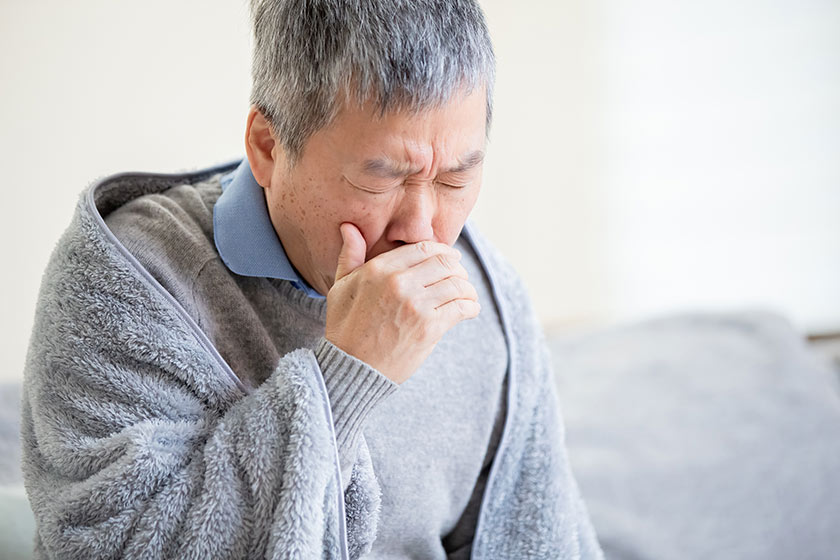Many things can cause coughing, but what are the most common types of coughs? As you grow older, your body will have more issues, and it’s important to know what the most common types of coughs are in your 50s to identify them when they happen. This way, you can figure out the cause of your cough and start taking action to find relief from whatever is causing the problem. Keep reading to learn about some of the most common types of coughs in your 50s.
Chronic Cough
A chronic cough is a persistent, non-productive cough that lasts for more than eight weeks. Chronic coughing may not sound serious, but it can negatively impact your health by increasing wear and tear on your lungs, heart and diaphragm. That’s why it’s important to get to the root of your chronic cough if you’re over 50 years old—even if you suspect that it might be something benign like GERD (gastroesophageal reflux disease) or postnasal drip syndrome. Several conditions can cause chronic coughing; these include bronchitis, asthma, and emphysema. A healthy diet rich in antioxidants may also help prevent chronic coughing as you age, especially in conjunction with other respiratory treatments.
Wet Cough
A wet cough occurs when you experience thin mucus or phlegm alongside your coughing. Usually, you’ll expel greenish-yellowish mucus with a wet cough. The reason for a wet cough can vary depending on what’s triggering it; it could be anything from an infection in your lungs to bronchitis to an upper respiratory tract infection. While some causes of a wet cough are temporary and treatable (and don’t require immediate medical attention), if you experience unexplained wet coughing for more than three weeks, it’s important to see your doctor—as it may be an indication of a much more serious problem.
Dry Cough
Dry cough is characterized by a feeling of needing to clear your throat after a coughing bout. Dry cough may be due to allergens, throat irritation or postnasal drip. Cough syrup may soothe throat irritation and help clear mucus from your lungs, but you should visit your senior living care experts within two weeks if there’s no improvement. The best way to cure dry cough is through natural remedies that give relief from flu-like symptoms for a few days. Warm water with lemon juice or honey can provide such relief. You can also use a hot bath and inhale steam from peppermint leaves three times daily for 20 minutes each time.
Paroxysmal Cough
Paroxysmal cough is characterized by sudden, recurrent coughing fits that come and go quickly. These coughing episodes are often brought on by an acute respiratory infection or extreme irritants like cigarette smoke, perfume or other chemicals. Coughing may sometimes stop on its own within a few minutes, while at other times, it may last for up to one hour before going away. It is important to understand that not all coughs are paroxysmal; benign coughs should not be confused with serious health conditions like asthma or emphysema.
Night Cough
A night cough is a raspy, dry, barking cough. It happens at night while you’re asleep. The frequency and severity may depend on what caused it in the first place. Sometimes an infection or fluid buildup is to blame, but no clear cause can be identified in many cases. If you have a mild case of nighttime coughing spells with no other symptoms, most doctors recommend that you try healthy home remedies first to see if they help with your night cough. These may include: – Drinking hot liquids like tea or warm milk – Humidifying your home to trap moisture in your lungs so they are less irritated and causing coughing – Taking cough suppressants – Getting good sleep habits like avoiding sleeping upright.







